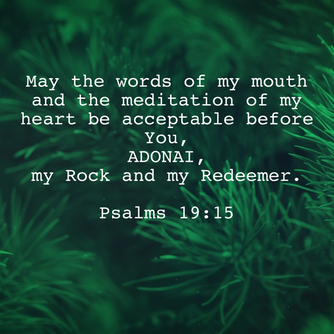|
Merry Christmas!
When we meet together in person, we share our joys and concerns. Consider what has happened this week to share in joy, thanksgiving, or concern. Anything you would like to share can be added as a comment. When you are ready, use the prayer below (source) as your prayer this morning:
Lord, we ask You to grant us peace. Peace in our homes, peace in our churches and peace in our hearts, especially when it feels like the world all around us spins out of control.
[Pray your personal prayers here] Help us stay focused on You, this Christmastime and always. Thank You for loving the whole world enough to send the greatest gift, Your Son, so we might truly have a very merry Christmas, even in a not-so-merry kind of world. In Jesus' Name, Amen.
This week's lesson is on Matthew 2:1-2, 7-15.
Lesson Context Matthew and Luke provide unique details on the story of Jesus' birth. Both contain genealogies that trace Jesus' human heritage. Both mention that angels announced Mary would conceive. Luke describes the message delivered to Mary before her pregnancy (Luke 1:26-38), while Matthew describes how Joseph learned of its origins after she was found to be with child (Matthew 1:18-25). Luke then offers a detailed description of the events leading up to the night of Jesus' birth, including Joseph and Mary's journey from Nazareth to Bethlehem for the Roman tax census, the fact that the newborn child was laid in a manger, and the visit of the shepherds (Luke 2:1-20). Matthew skips the actual birth story to describe the strange appearance of wealthy and mysterious Gentiles to honor the baby Jesus. The two accounts broaden our awareness of the events surrounding Jesus' birth and also offer complementary perspectives on the implications of Christ's coming. Luke's focus on the manger and the shepherds anticipates Jesus' later emphasis on the poor and outcast (example: Luke 6:20-21). Matthew's story of the Magi shows how Christ's life and death would reach far beyond the borders of Israel to bring salvation to people of many races and nationalities (example: Matthew 28:18-20). Taken together, the two Gospels underscore a key feature of Christ's ministry: reaching across barriers to bring salvation to all (John 3:16-18). Lesson This is a scripture passage that I think we are all familiar with. We read this every Christmas! We don't entirely know who the Magi were, or where they were from. Because they came from the east, some possibilities include Babylon and Persia. The Magi were considered experts in discerning the will of the gods and divining the future. They did this by observing various elements of nature, such as stars, weather patterns, and the behavior of animals. The Magi observed the star appear, and came to worship the king that it heralded. Our book makes a big point about the Magi following the star. The Law of Moses clearly forbids the occult practices used by the Magi. But God communicated with these pagan astrologers in terms they could understand. The book also suggests that perhaps the star appeared before Jesus' birth, to give the Magi time to travel. Or, the Magi may not have reached the child until he was older (see Matthew 2:16). Our book says that the Magi went to Jerusalem, as that was the seat of government. They expected to find a new birth in the Herod's household. Herod then sent the Magi to Bethlehem, a small town about six miles south of Jerusalem (about the same distance as Houston to Washington). Prophecies in the book of Micah (5:2-4) said that the Messiah would be born there. When the Magi reached the house in Bethlehem, they found the child. They gave him gifts of gold, frankincense and myrrh. These were all rare, expensive items that would be excellent gifts for a king. The Magi worshipped the child, the newborn king. God again communicated with the Magi in a way that was familiar to them. He used their dreams to warn them to return secretly to their country. After our passage ends, we find that Herod orders the killing of all boys ages two years and under. He wanted to eliminate any challenge to his power. Thankfully, Joseph was also warned in a dream to flee. Mary, Joseph and baby Jesus left for Egypt. Conclusion Matthew's account foreshadows a deep tragedy in Christ's ministry: those who should have been most prepared to accept him did not (John 1:11). Instead, pagan astrologers welcomed him with worship and expensive gifts! This story is filled with the unexpected. No one expected pagan Magi to appear to Herod's palace with congratulations on the birth of a royal child, especially since no such child had been born in Jerusalem! The Magi certainly did not expect to find the king of the Jews in a peasant's house outside the capital. Jews did not expect the Christ to be born into danger so that his parents would need to flee to Egypt to protect him. Most significantly, one would assume that the chief priests and appointed king of Judea would welcome the newborn Messiah. Matthew's account thus demonstrates the need to remain open to the unexpected. It encourages us to watch for God in action, even when (or especially when) he acts through people we might not anticipate. We still need eyes to see and ears to hear (Matthew 13:16-17). Prayer Father, help us to interpret your Word correctly and to listen carefully for your voice. Give us the strength to follow your call whenever and however it comes. In Jesus' name we pray. Amen. Benediction This week's benediction is from the Tree of Life translation.
Next week's lesson will be on Matthew 3:1-12.
0 Comments
Leave a Reply. |
AuthorWe are a small, rural Presbyterian church in southwestern Pennsylvania. Archives
July 2024
Categories
All
|


 RSS Feed
RSS Feed